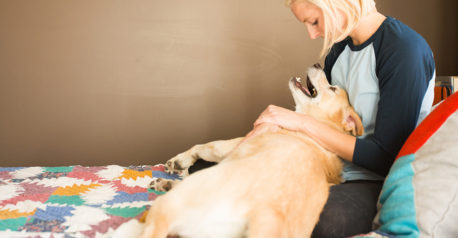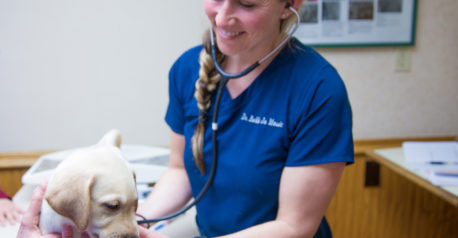Cat Anesthesia
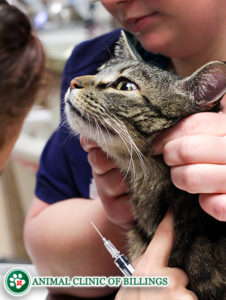 At some point in your furry feline’s life, he may need a procedure or surgery to maintain her excellent health. Surgery requires anesthesia, which is meticulously administered and monitored by our veterinary staff. Understanding the basics about how anesthesia will be used in cat surgery will alleviate any concerns while your kitty is under our care.
At some point in your furry feline’s life, he may need a procedure or surgery to maintain her excellent health. Surgery requires anesthesia, which is meticulously administered and monitored by our veterinary staff. Understanding the basics about how anesthesia will be used in cat surgery will alleviate any concerns while your kitty is under our care.
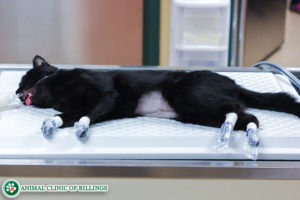
Cat anesthesia is necessary when a procedure requires the cat to be immobilized or if the procedure will cause pain or distress that is beyond what the cat can comfortably tolerate. We want you to feel comfortable with our hospital, staff, and assure you our veterinary team is here to answer questions and make the procedure easier for you and your cat.
Because cats have specific needs, it is vital that veterinary anesthesia protocols are followed properly to prepare your cat for surgery.
At the Animal Clinic of Billings, ensuring your cat is in optimal health before surgery is a, and your veterinarian will always recommend diagnostic testing before the procedure to make sure we have a complete snapshot of your cat’s health.
Why Would Your Cat Need Anesthesia?
Cat anesthesia is used during any procedure where the cat must be immobilized or may feel pain. The anesthesia keeps your cat in a pain-free unconscious state, and he will not feel any discomfort.
RISKS ASSOCIATED WITH GIVING CATS ANESTHESIA
There is always risk with surgery, but the risk is minimal thanks to the experienced veterinary team at the Animal Clinic of Billings and Animal Surgery Clinic.
Our veterinary staff ensures the risks are minimized by performing careful and consistent monitoring throughout the time our feline patients are under cat anesthesia.
WHAT TO EXPECT WITH CAT ANESTHESIA
Your veterinarian will provide specific instructions before your cat receives anesthesia or undergoes any surgical procedure. Your veterinarian will also discuss the risks of veterinary anesthesia.
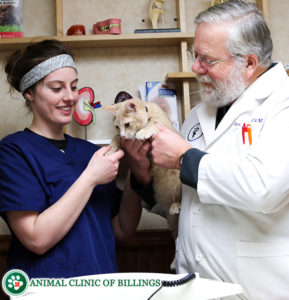
Things to keep in mind before the surgery:
- Fasting is required the night before surgery.
- Follow all directions provided by your veterinarian.
- Depending on the procedure and your cat’s condition, your veterinarian might recommend prescription pain medications while your cat recovers.
- Feel free to ask questions and voice your concerns. Our veterinary staff is happy to address your questions and
- Ease your mind before or after the cat surgery is performed
ANESTHETIC MONITORING AND SAFETY
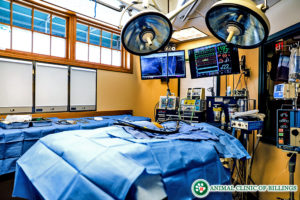 The veterinary surgical team vigilantly monitors your cat during and after surgery, and throughout the time he is under the influence of sedation. Precision anesthesia and cardiovascular monitoring are essential aspects of every operation we perform. Anesthesia is individualized for your cat based on several factors, which include the type of procedure, pre-existing conditions, blood test values, age, breed, and prior anesthetic experience.
The veterinary surgical team vigilantly monitors your cat during and after surgery, and throughout the time he is under the influence of sedation. Precision anesthesia and cardiovascular monitoring are essential aspects of every operation we perform. Anesthesia is individualized for your cat based on several factors, which include the type of procedure, pre-existing conditions, blood test values, age, breed, and prior anesthetic experience.
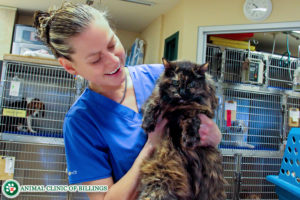 The more precise the anesthesia, the fewer side effects, and the faster the recovery. During anesthesia and surgery, your cat is continuously monitored by a trained veterinary technician, using our advanced monitoring system. This system continually monitors your cat’s arterial oxygen level, blood pressure, heart rate, respiratory rate, and core body temperature.
The more precise the anesthesia, the fewer side effects, and the faster the recovery. During anesthesia and surgery, your cat is continuously monitored by a trained veterinary technician, using our advanced monitoring system. This system continually monitors your cat’s arterial oxygen level, blood pressure, heart rate, respiratory rate, and core body temperature.
We focus on achieving the best and safest outcome for your cat. You can rest assured your pet will receive the highest and most compassionate surgical care and anesthetic administration.
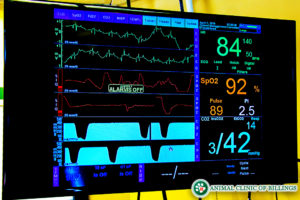 The risk of cat anesthesia are very low, and when your cat comes out of surgery, the veterinary staff will continue to do the following:
The risk of cat anesthesia are very low, and when your cat comes out of surgery, the veterinary staff will continue to do the following:
- monitor the cat’s heart rate, body temperature, blood pressure, oxygen levels, and carbon dioxide output levels;
- keep an IV catheter attached to provide fluid support if there are any fluctuations in blood pressure;
- Make sure your cat is breathing and resting comfortably.
WHAT TO EXPECT WHEN CATS COME OUT OF ANESTHESIA
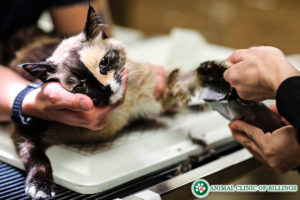
The veterinary team at the Animal Clinic of Billings will continue to monitor the patient’s vital signs, heart rate, and blood pressure until your cat is ready to return home. Before leaving, you will receive specific instructions on caring for your cat, including a pain management plan.
Follow all instructions provided by your veterinary team to ensure your cat’s full recovery. Don’t be alarmed if your cat appears groggy and does not have an appetite for a period after being discharged. If you have concerns, call the Animal Clinic of Billings immediately.
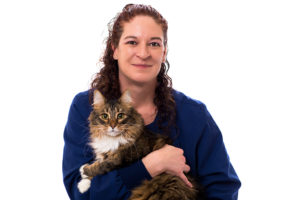
Our highly trained and experienced veterinarians and veterinary technicians can help you keep your cat as happy and healthy as possible.
Call the Animal Clinic of Billings to schedule your cats next wellness examination with us today!
406-252-9499 REQUEST AN APPOINTMENT


